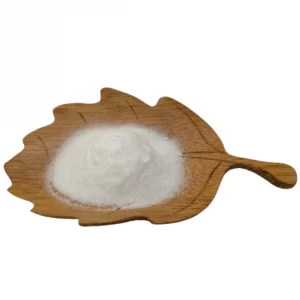Effects of linseed oil

What is linseed oil
Flaxseed oil/flaxseed oil is the oil extracted from flaxseed (a whole grain oil seed, ranging in color from golden yellow to dark brown), which can be converted into anti-inflammatory prostaglandin (PGE3) in the human body, which can help the body fight inflammatory diseases, so it has been known as the holy oil with energy since ancient times.
Linseed/flaxseed oil differs from other vegetable oils in that linseed oil contains about 39% to 60% alpha-linolenic acid (a type of omega-3), followed by oleic, linoleic, palmitic and stearic acid, which provides excellent omega-6: The ratio of omega-3 fatty acids is about 0.3:1
Linseed oil oil accounted for more than 92.8%, is characterized by about 51.9-55.25% of linolenic acid, and about 14.2-17% of Linilenic acid (LA, an Omega-6 fatty acid), linolenic acid and linolenic acid are essential fatty acids for humans, because they cannot be synthesized by themselves. Get it from food (2). After ingestion of linolenic acid, it will further generate arachidonic acid (AA), EPA, DHA and other molecules (3). Do you think EPA and DHA are familiar? That’s right, it’s a common ingredient in fish oil, so linseed oil is also known as the “vegetarian fish oil” and is an ideal choice for those who want to supplement their vegetarian diet with Omega-3 fatty acids.
What are the recommended empirical benefits of linseed oil?
1. Linseed oil is beneficial for blood pressure regulation
High blood pressure is also known as the “silent killer” because it may have no symptoms or signs, especially in the beginning, and a sustained long-term rise in blood pressure means increased cardiac output and endothelial or blood vessel damage, leading to associated complications such as cardiovascular disease, cerebrovascular disease, and kidney failure.
A systematic review and Meta-Analysis of five randomized placebo-controlled trials in patients with metabolic syndrome and related disorders found that consumption of flaxseed oil reduced systolic blood pressure but did not significantly change diastolic blood pressure.
For metabolic syndrome and related diseases, intake of flaxseed oil may be helpful in blood pressure regulation, but due to the small sample size and high heterogeneity among included trials, more studies are needed to further verify
2. Linseed oil relieves oxidative stress
The modern definition of oxidative stress has been updated from the simple concept of “imbalance between oxidants and antioxidants” to “imbalance between pro-oxidants and antioxidants, accompanied by disruption of REDOX circuits and damage to macromolecules”.
Imbalances between the oxidative and antioxidant systems, including increased malondialdehyde and decreased total antioxidant capacity and glutathione, lead to oxidative stress.
A systematic review and Meta-Analysis (8 randomized placebo-controlled trials with 429 participants) indicated that supplementation with flaxseed oil significantly reduced serum malondialdehyde levels and increased total antioxidant capacity, but had no significant effect on glutathione levels.
Intake of linseed oil may have a positive effect on relieving oxidative stress, but due to the small sample size, more studies are needed to further verify
3. Linseed oil is beneficial for cardiovascular disease
Cardiovascular disease is currently the greatest health threat to humanity, affecting 80 million people in the United States alone, including coronary heart disease, stroke, heart failure, arrhythmia, rheumatic heart disease and other valve heart diseases.
Among the dietary factors that affect cardiovascular disease, saturated fat, trans fat, salt intake and insufficient fruits and vegetables are the most common.
A literature review and meta-analysis (27 studies with nearly 260,000 participants) found that diets high in alpha-linolenic acid (ALA, which can be derived from flaxseeds or other plants) reduced the risk of cardiovascular disease by about 14%.
The underlying mechanism may be related to the effect of α-linolenic acid (ALA) on anti-thrombosis, improving vascular endothelial function and regulating inflammatory response
Higher intake of alpha-linolenic acid/ALA from natural foods is associated with a lower incidence of cardiovascular disease
4. Linseed oil improves inflammation markers
Inflammation is a series of reactions caused by the body after tissue damage caused by pathogenic, traumatic or toxic substances.
The inflammation process is the battle field of pro-inflammatory and anti-inflammatory hormones, involved in cell chemotaxis, migration and proliferation, when anti-inflammatory hormones are insufficient, it begins to turn into chronic inflammation, which is the main cause of various chronic diseases.
A meta-analysis of the literature (25 randomized controlled trials with 2579 participants) indicated that additional supplementation with alpha-linolenic acid (mainly from linseed oil) had no significant effect on the improvement of multiple inflammatory markers. Such as tumor necrosis factor (TNF), interleukin-6 (IL-6), C-reactive protein, soluble intercellular adhesion molecule (sICAM-1), soluble vascular cell adhesion molecule (sVCAM-1).
In addition, subgroup analysis also found that alpha-linolenic acid supplementation may increase C-reactive protein levels in healthy populations, for unknown reasons.
No significant positive benefit was found in the use of linseed oil (flaxseed oil) to improve inflammation markers, and due to the heterogeneity and bias of the study, the results need more empirical confirmation
5. Flaxseed oil is beneficial for carpal tunnel syndrome
Carpal tunnel syndrome is a common orthopedic and rheumatological disorder that causes pain, numbness, and tingling in the hands and arms. This condition occurs when one of the main nerves in the hand: the median nerve is pinched or compressed as it passes through the wrist.
The prevalence of carpal tunnel syndrome ranges from 1% to 5%, with prevalence as high as 14.5% in certain occupational groups, especially in industries that require high stress and repeated use of vibration tools
Other known causes of carpal tunnel syndrome include diabetes, rheumatoid arthritis, acromegaly, hypothyroidism, pregnancy, and tenosynovitis.
A 3-week randomized, open clinical trial of 59 patients with mild-to-moderate idiopathic carpal tunnel syndrome showed that topical linseed oil gel was more effective in improving symptoms and function than wrist splinting.
Topical linseed oil gel has a positive effect on the improvement of carpal tunnel symptoms and is more effective than splint treatment, but the results need more long-term studies to confirm.
6. Linseed oil is good for diabetes
Diabetes is one of the leading causes of reduced life expectancy and an explosion of chronic diseases this century, including cardiovascular disease, dementia, fatty liver disease, mood disorders, and cancer.
The most common type 2 diabetes is divided into two stages: insulin resistance, which leads to the need to produce insulin in large quantities, followed by manufacturing fatigue and uncontrolled blood sugar.
A systematic review and meta-analysis (8 studies with 212 participants) found that intake of ALA (from flaxseed oil, chia seeds, or walnuts) had no significant effect on HbA1c, fasting blood glucose, and fasting blood insulin, but subgroup analysis found that The dose-response relationship is still possible and needs to be further confirmed.
Overall, the effect of dietary ALA on blood sugar-related parameters was neutral and did not improve significantly. Moreover, the results were limited by small sample size and heterogeneity, and more studies are needed to confirm it
7.Linseed oil can regulate cholesterol levels
LDL cholesterol represents a group of molecules that vary in size, density, charge, and chemical composition (lipid/lipoprotein).
According to the unit density, it can be divided into large-buoyant and small-dense lipoprotein cholesterol, and small buoyant cholesterol, due to its easy oxidation, high endothelial cell permeability, low receptor affinity and other characteristics, will increase the atherogenic rate by 2 to 3 times, which is an important independent factor for predicting cardiovascular disease.
A randomized, double-blind, cross-over study (24 weeks of 15 men) showed that in addition to increasing blood ALA and EPA, the use of flaxseed oil also reduced very low-density lipoprotein cholesterol (sd-LDL) compared with corn germ oil, especially in subjects with triglycerides greater than 100 mg/dl.
Intake of linseed oil (flaxseed oil) has the effect of regulating low density lipoprotein cholesterol
8. Linseed oil can improve constipation
Constipation is a common functional gastrointestinal disease, depending on the definition of different regions, the prevalence of the population is about 2% to 27%, the incidence of women is 3 times that of men, possibly related to hormones.
Due to the many causes of constipation, there is no standard treatment. If life adjustment is ineffective (drink more water, dietary fiber intake, exercise), common treatment drugs include: soft stool agents, osmotic and stimulant purgants, lubricants, etc.
A randomized, double-blind, placebo-controlled, 4-week study of 50 constipation patients undergoing hemodialysis showed that daily use of linseed oil or olive oil was comparable to mineral oil in improving constipation.
Flaxseed oil (flaxseed oil) has been shown to improve constipation and is as effective as mineral oil, a conventional treatment, but more research is needed to confirm the results
9. Linseed oil is beneficial for Thugelin’s syndrome
Hughlen’s syndrome is a chronic autoimmune disease of unknown cause, which is caused by lymphocytic infiltration of exocrine glands and epithelial cells.
Symptoms can range from mild dry mouth and eyes, joint pain, and fatigue to more severe vasculitis, nephritis, and nervous system abnormalities.
In a randomized study, oral administration of linseed oil (flaxseed oil) has been shown to reduce eyeball inflammation and relieve dry keratoconjunctivitis in patients with Thuglin’s syndrome, but the study was small and more studies are needed to confirm it.
Omega-3 Manufacturer / Omega-3 Manufacturers/ Omega-3 Supplier / Omega-3 Suppliers/ Omega-3 Factory:
www.backvita.com
Email: [email protected]
Phone: +86 (029) 8187 2325
() ()


